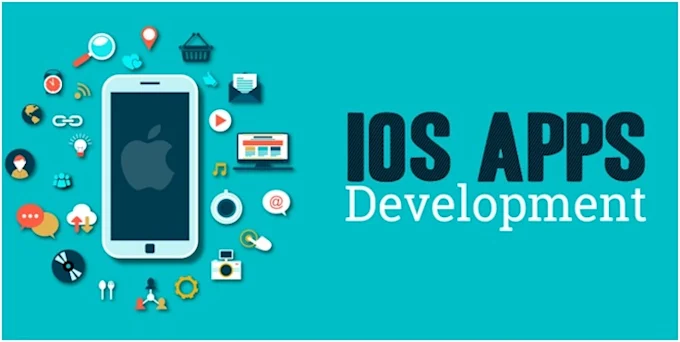The rise of mobile applications has transformed how businesses operate and interact with customers. From banking and healthcare to retail and logistics, mobile apps now handle vast amounts of sensitive data. This reliance on digital systems makes security one of the most critical aspects of app development.
For companies building enterprise-grade or consumer-facing apps, partnering with an iOS app development company in USA ensures that strict security practices are implemented from day one. These firms are well-versed in Apple’s ecosystem, regulatory frameworks, and industry best practices, making them ideal partners for building secure, scalable apps.
Below, we’ll break down the essential security standards that reputable iOS developers follow to protect users, data, and businesses.
1. Secure Coding Practices
Security begins at the code level. Developers adopt techniques to prevent vulnerabilities such as:
- Buffer overflow prevention: Ensuring no malicious code can overwrite memory.
- Input validation: Blocking harmful data that could lead to SQL injection or cross-site scripting.
- Code obfuscation: Making source code harder for attackers to reverse-engineer.
An experienced iPhone app development services provider follows Apple’s coding standards and reviews every line to minimize risks.
2. Data Encryption
Sensitive data—whether stored on the device or transmitted to a server—must always be encrypted. iOS developers use:
- AES-256 encryption for secure data storage.
- TLS (Transport Layer Security) for protecting in-transit information.
- Keychain services to store passwords, tokens, and certificates securely.
This ensures even if attackers access raw data, they cannot interpret or misuse it.
3. Strong Authentication and Authorization
Weak login systems are a common entry point for cyberattacks. To counter this, developers integrate:
- Biometric authentication: Face ID and Touch ID for secure access.
- Two-factor authentication (2FA): Adding an extra layer beyond passwords.
- Role-based access control (RBAC): Ensuring employees or users only access what they need.
Such practices protect apps from unauthorized access while ensuring smooth user experiences.
4. Compliance with Regulatory Frameworks
Many industries must adhere to strict laws regarding data protection. A reliable iOS app development company in USA ensures compliance with:
- HIPAA for healthcare apps handling patient records.
- PCI DSS for apps processing payments.
- GDPR & CCPA for protecting user privacy.
- SOC 2 for enterprise security standards.
Non-compliance not only risks data breaches but also heavy financial penalties.
5. Secure API Integration
Most enterprise apps rely on APIs to connect with third-party services like payment gateways, CRMs, or cloud storage. Poorly designed APIs can expose sensitive data.
Developers follow best practices such as:
- Using OAuth 2.0 for secure authorization.
- Implementing rate limiting to prevent denial-of-service attacks.
- Encrypting API responses to avoid leaks.
This ensures seamless yet secure communication between systems.
6. Regular Security Testing
Security is not a one-time effort—it requires ongoing testing and monitoring. Developers use:
- Penetration testing: Simulating attacks to find vulnerabilities.
- Static Application Security Testing (SAST): Reviewing source code for weaknesses.
- Dynamic Application Security Testing (DAST): Testing live apps for real-world threats.
An enterprise-ready partner doesn’t just launch apps; they continuously update and test them as new threats emerge.
7. App Store Compliance
Apple’s App Store has some of the most rigorous approval standards. Apps that don’t meet them can be rejected or removed.
Experienced iOS developers ensure:
- No use of insecure private APIs.
- Adherence to Apple’s encryption export regulations.
- Transparency in data collection and permissions.
Following these standards keeps apps trustworthy and ready for global distribution.
8. Secure Network Connections
Unsecured Wi-Fi networks and man-in-the-middle attacks are major threats. To mitigate them, apps are designed to:
- Use SSL pinning to verify server authenticity.
- Block connections over untrusted networks.
- Regularly update certificates and keys.
This prevents attackers from intercepting data between the app and server.
9. Cloud Security Integration
Many enterprise apps rely on cloud infrastructure for scalability. Developers ensure security at both ends:
- End-to-end encryption for data stored in the cloud.
- Identity and Access Management (IAM) for controlling employee permissions.
- Disaster recovery protocols to minimize downtime.
These safeguards allow businesses to expand while keeping sensitive data protected.
10. Ongoing Monitoring and Updates
Threats evolve constantly, making maintenance just as important as initial development. Reputable U.S.-based partners provide:
- Regular security patches aligned with Apple’s updates.
- Monitoring tools for detecting suspicious activities.
- Quick response protocols for addressing vulnerabilities.
This long-term approach helps enterprises maintain trust with their users.
Why Choose a U.S.-Based Development Partner?
While global outsourcing is common, security requires precision and accountability. A local iOS app development company in USA offers advantages such as:
- Familiarity with U.S. data protection laws.
- Easier collaboration and communication.
- Stronger accountability for long-term partnerships.
When sensitive data, compliance, and customer trust are at stake, local expertise makes all the difference.
Conclusion
Mobile app security is not optional—it’s essential. From encryption and authentication to regulatory compliance and ongoing monitoring, enterprises must partner with developers who treat security as a top priority.
By working with an iOS app development company in USA, businesses gain access to teams that understand Apple’s standards, U.S. regulations, and industry best practices. Combined with robust iPhone app development services, these companies ensure that enterprise apps are not only functional and user-friendly but also secure against ever-evolving threats.
In a digital world where one breach can damage reputation and finances, choosing the right development partner is the first step toward building trust and long-term success.

